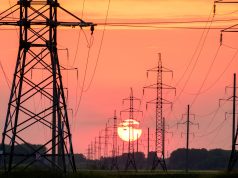According to the Harvard Gazette, “Esther Duflo, a development economist at Massachusetts Institute of Technology (MIT), said during the year’s first Tanner Lecture on Wednesday that the world’s rich prosper in part because they have less freedom to choose how to attain basic comforts.”
This is flimflam.
Part of what Duflo is pointing to is certainly true: making decisions is costly. The Nobel Prize winning economist and social philosopher F. A. Hayek’s explained that one of the fundamental reasons we are wealthier in a division of labor is that it allows us to “make use of knowledge we do not possess.” Others do things for us in the division of labor that we don’t know how to do for ourselves, at least not at a low enough cost. To be prosperous, we absolutely need systems that relieve us of having to know and make choices about everything. What Duflo seems to be missing, however, is that it is freedom, not governmental force, that has enabled people in developed countries to solve this kind of problem and thus become wealthy.
People in developed countries have much more access to systems based on competition and choice than those in developing ones. Freer markets, greater ability to move from one administrative district to another, and mechanisms that make local government relatively more accountable to people enables people in developed countries to select alternatives that serve their needs better. Such competition also creates incentives and feedback to others to provide better and better alternatives.Prices and profit signals give entrepreneurs the incentive to provide alternatives that reduce our costs, including the costs of acquiring knowledge and in making decisions.Entrepreneurs offer us “packages” of goods and ways of acting that we prefer on net. For instance, it has become too costly for most to shop for flight prices among so many different airlines. Entrepreneurs have developed products that do it for us such as MakeMyTrip.com. Entrepreneurs create brands and reputations to entice me to trust them, websites and associations that alert me to quality, advertise to let me know about the options. The point is, if we prefer reducing our costs of learning and decision making, entrepreneurs find out how to satisfy that need. “Tired of having to decide what to buy, cook, and eat every night? Buy our 365, No Worries Meals package and you will never have to worry about choosing what to eat again!”
Poor people in developing countries are not poor because they have too many options, but because they have too few. Entrepreneurs and markets that could serve them, reduce their costs, and help solve their problems are hampered, burdened, restricted. The example of the cost of boiling water vs. having clean water Duflo offers are legitimate examples of costs people have to face. It takes time and energy to think about this and to do it. But what the poor need is not for governments to supply them with one shoddy service and restrict competition. For one, many people have to boil the water because the government is not capable or willing to provide safe, clean drinking water. There is already a growing market in bottled water and bottled water delivery in India. Many people owe freer markets, not “development-conscious governments,” for being able to have clean water at a lower cost than having to boil what they drink.
Post Disclaimer
The opinions expressed in this essay are those of the authors. They do not purport to reflect the opinions or views of CCS.




